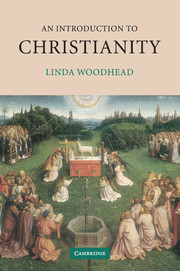Conclusion
Published online by Cambridge University Press: 05 February 2015
Summary
Those who have followed this book from start to finish will notice that the story has come full circle. It began with a religion that was marginal to social power, and it ends with a religion that has become marginal to social power once more. The fact that Christianity lost influence over the spheres of political, economic, military and even ideological power does not, of course, mean that it necessarily loses influence over individual lives. It does, however, mean that such influence is likely to take particular forms. It will be felt at the personal rather than at the public level, and Christian ethics will be concerned with the regulation of personal, intimate and domestic life. In so far as Christianity continues to have an impact on political and economic life, it will do so by shaping behaviour and commitment at the individual level. Some churches may continue to make pronouncements about war, politics and economics, but they will do so from the margins rather than from the centre, and without any guaranteed influence. Grand theological systems are likely to be eclipsed by teachings that have an immediate relevance to the individual in the living of his or her life. Rather than having an established status in society, Christianity has, once again, to fight for that place with a wide range of competitors.
- Type
- Chapter
- Information
- An Introduction to Christianity , pp. 404 - 409Publisher: Cambridge University PressPrint publication year: 2004



